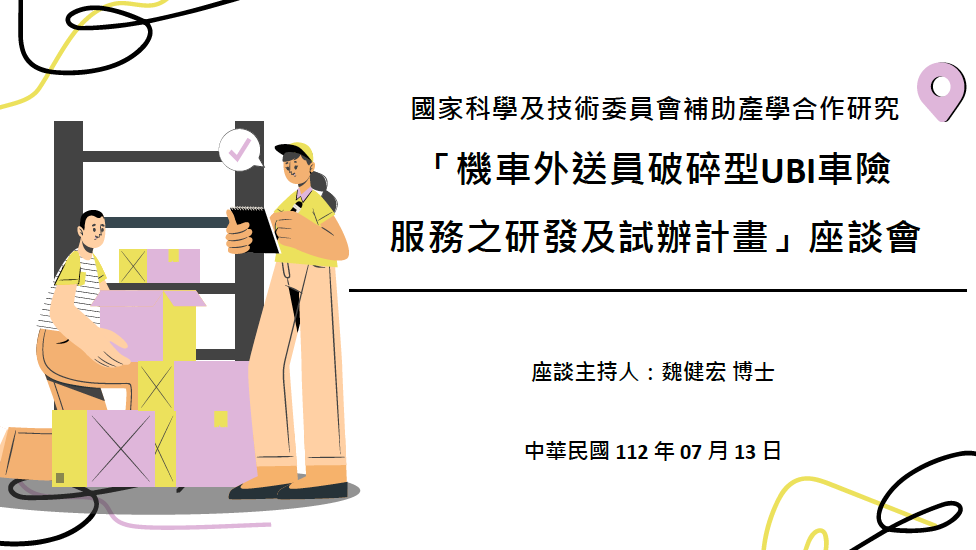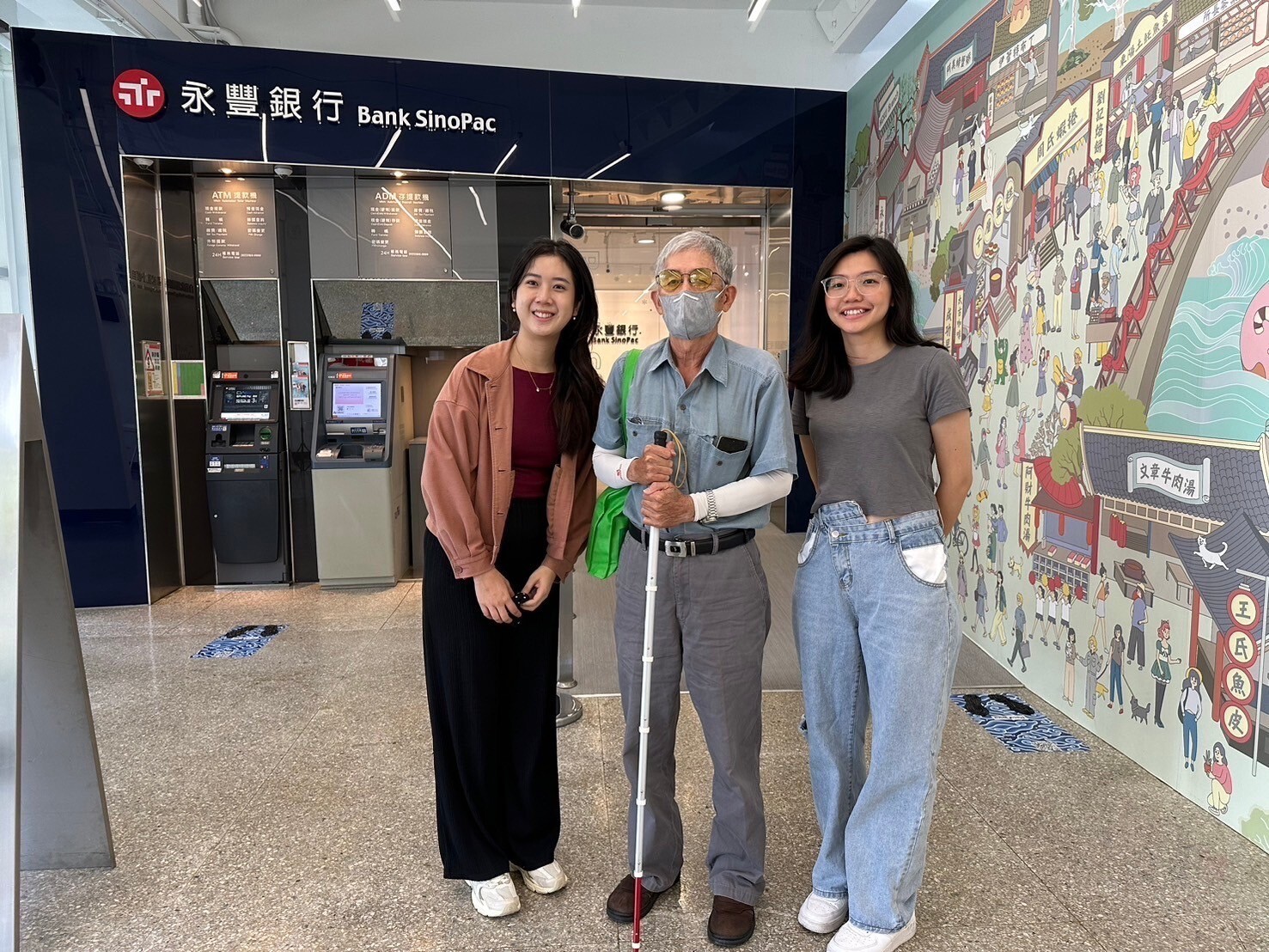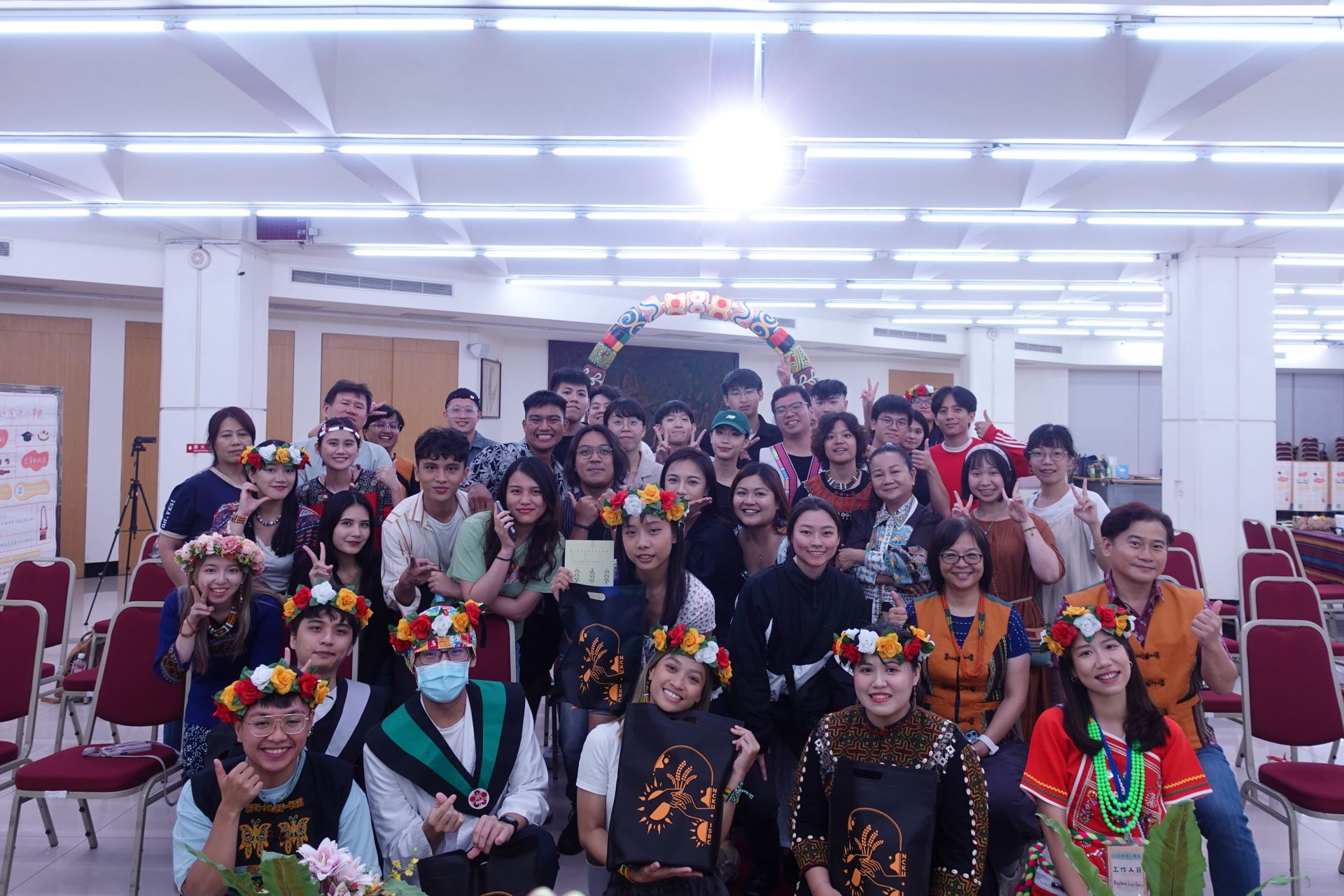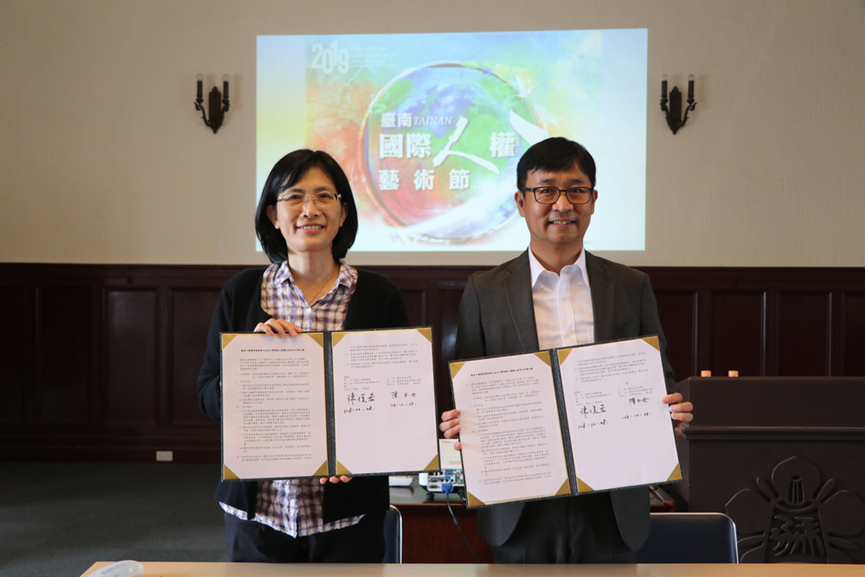SDG10
Awakening Taiwan’s Memory of Human Rights through the Sincerity of Art: MOU between NCKU and the National Human Rights Museum
National Cheng Kung University (NCKU) and the National Human Rights Museum signed a Memorandum of Understanding for Human Rights Education through Arts in the morning of October 28, 2019 at the NCKU Museum. Because of the signing of this memorandum, the two parties shall co-host the Tainan International Human Rights Festival in November. The programs of the festival include an International Human Rights Art Festival–Symposium on Memory, Human Rights, and Theatre, a theatrical performance from Hong Kong, Lu-ting the Merman, a Taiwanese musical, The Spring of Bayhops, the Phoenix Tree Drama Festival organized by NCKU students, and exhibitions concerning human rights issues in 1960s Taiwan. The dean of the College of Liberal Arts, Chen Yuh-Neu, indicated that human rights issues are closely related to daily life. In addition, the arts affect society in an imperceptible way. Through cooperation with the National Human Rights Museum and the integration of human rights issues with various forms of art such as theater, the visual arts, and performances, NCKU is expected to become the exhibition and research base for human-rights-related artistic creation in southern Taiwan.
After 10 years of preparation, the National Human Rights Museum was established in May 2018. In September of that year, it became the host of the Federation of International Human Rights Museums–Asia Pacific. The museum has thus quickly gained international recognition. The director of the museum, Chen Chun-Hung, stated that human rights issues encompass a wide scope, and the arts serve to establish a platform for conversation, deliberation, and debate. Moreover, the director expressed his hope that Tainan will become a crucial location for human rights exchange and a strong force promoting extraordinary artworks to an international audience under the leadership of NCKU.
The International Human Rights Art Festival–Symposium on Memory, Human Rights, and Theatre—which will be held from November 4 to 6—will be the first international meeting of human rights and theatrical workers in Taiwan. The participants will include theater directors and relevant scholars from Argentina, Hong Kong, Singapore, South Korea, and Malaysia. Liu Nan-Fang, a associate professor from the Department of Taiwanese Literature, NCKU, has stated that human rights are a universal value, and theater is an excellent artistic medium; in Argentina and South Korea, for example, theaters have been developed to reflect social issues. In addition, on the basis of the theater-related efforts made by NCKU students and faculty members, the International Human Rights Festival can continue to promote human rights education and encourage artistic creation concerning human rights. Through connection of NCKU with the world, Taiwan can participate in the global community with respect to human rights issues.
Professor Kao Mei-Hua, from the Department of Chinese Literature, NCKU, stated that the fight for human rights often results in traumatic memories in a society. Autobiographies, oral history, and documentaries can conserve such history; nevertheless, artistic media such as literature, films, and theaters can turn personal experiences into issues that the society can then contemplate. Professor Kao indicated that we not only preserve sad and painful memories but also interpret and understand history through the medium of art. Furthermore, by participating in the interpretation, creation, and support of human-rights-related art, Taiwanese people’s memories of the human rights movement can be awakened through the sincerity of art.
The International Human Rights Art Festival–Symposium on Memory, Human Rights, and Theatre—which will be held from November 4 to 6—will be the first international meeting of human rights and theatrical workers in Taiwan. The participants will include theater directors and relevant scholars from Argentina, Hong Kong, Singapore, South Korea, and Malaysia. Liu Nan-Fang, a associate professor from the Department of Taiwanese Literature, NCKU, has stated that human rights are a universal value, and theater is an excellent artistic medium; in Argentina and South Korea, for example, theaters have been developed to reflect social issues. In addition, on the basis of the theater-related efforts made by NCKU students and faculty members, the International Human Rights Festival can continue to promote human rights education and encourage artistic creation concerning human rights. Through connection of NCKU with the world, Taiwan can participate in the global community with respect to human rights issues.
Professor Kao Mei-Hua, from the Department of Chinese Literature, NCKU, stated that the fight for human rights often results in traumatic memories in a society. Autobiographies, oral history, and documentaries can conserve such history; nevertheless, artistic media such as literature, films, and theaters can turn personal experiences into issues that the society can then contemplate. Professor Kao indicated that we not only preserve sad and painful memories but also interpret and understand history through the medium of art. Furthermore, by participating in the interpretation, creation, and support of human-rights-related art, Taiwanese people’s memories of the human rights movement can be awakened through the sincerity of art.

SDG10"Development and Trial Project of Motorcycle Delivery Courier Shattered-Type UBI Vehicle Insurance Service" Symposium
View more
SDG10Perfect Match: Indonesian Startup Founder Earns IMBA from NCKU, Achieves Major Business Milestone
View more




















